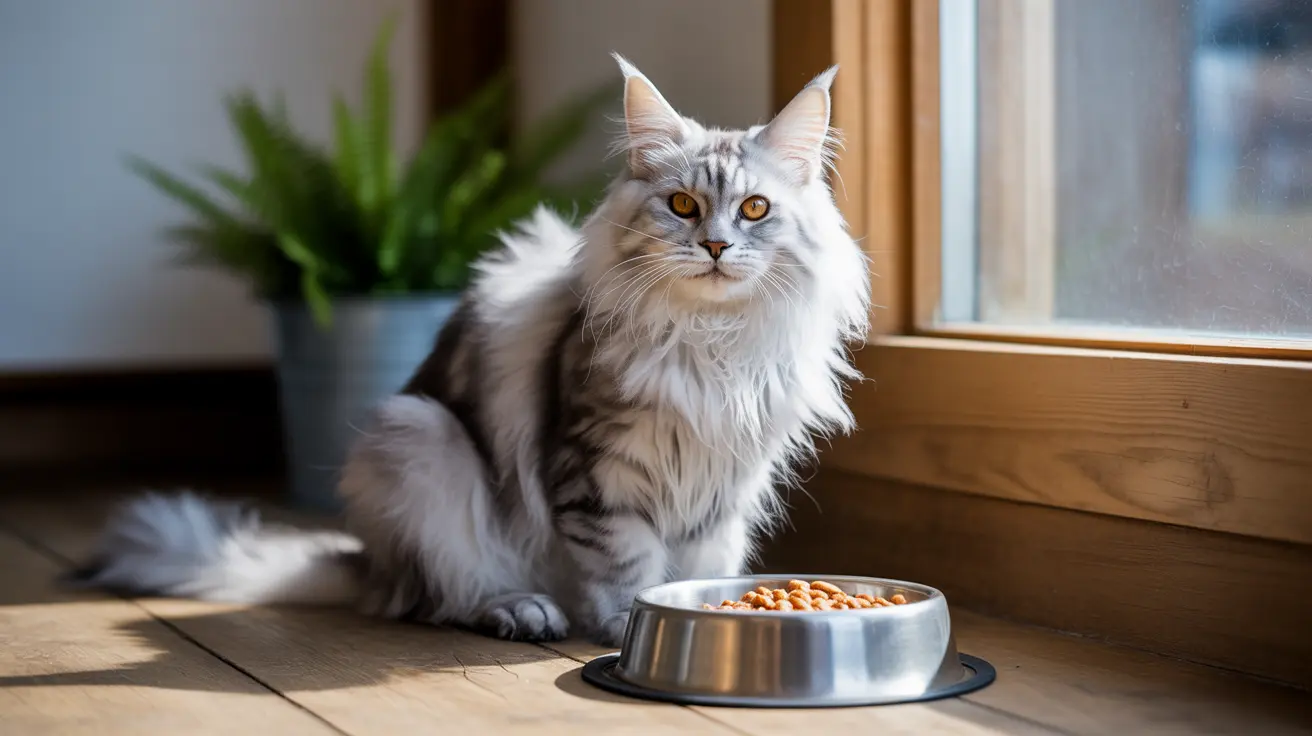Understanding Cat Purring and Loss of Appetite
Cats are masters at hiding illness, and their purring mechanism serves multiple purposes. While we commonly associate purring with happiness, cats also use purring as a self-soothing mechanism when they're stressed, in pain, or unwell. This explains why a cat might continue purring even when experiencing health issues that affect their appetite.
Research has shown that purring frequencies (between 25-150 Hz) can promote healing and provide pain relief, suggesting that cats might instinctively purr when feeling unwell to help themselves recover.
Common Reasons for Loss of Appetite in Purring Cats
Behavioral Causes
Sometimes, the reason for your cat's reduced appetite is behavioral rather than medical:
- Recent environmental changes
- New pets or family members
- Changes in feeding routine or food type
- Stress or anxiety
- Food aversion from negative experiences
Medical Conditions
Several health issues can cause appetite loss while your cat maintains normal purring behavior:
- Dental problems or oral pain
- Gastrointestinal issues
- Kidney disease
- Upper respiratory infections
- Inflammatory bowel disease
- Cancer or tumors
The Dangers of Prolonged Food Avoidance
A cat's unique metabolism means they can't go long without eating. After just 24-48 hours without food, cats can develop hepatic lipidosis (fatty liver disease), a potentially fatal condition. This makes it crucial to address appetite loss promptly, even if your cat appears content and continues purring.
When to Seek Veterinary Care
Contact your veterinarian immediately if:
- Your cat hasn't eaten for 24 hours or more
- There are additional symptoms like vomiting or lethargy
- You notice significant weight loss
- Your cat shows signs of pain or distress
- There are changes in bathroom habits
How to Encourage Eating
While waiting for veterinary care, try these methods to encourage eating:
- Warm food slightly to enhance aroma
- Offer different food textures and flavors
- Provide a quiet, stress-free eating environment
- Use food toppers or broths
- Hand-feed small amounts if your cat is willing
Frequently Asked Questions
Why is my cat not eating but still purring?
Your cat may be purring as a self-soothing mechanism while dealing with illness, stress, or pain. Purring doesn't always indicate contentment and can occur even when cats are unwell.
Can a cat purr when it is in pain or feeling unwell?
Yes, cats often purr when in pain or feeling unwell. The vibrations from purring can help with pain relief and healing, making it a natural response to discomfort.
What medical conditions can cause a cat to stop eating yet continue to purr?
Various conditions including dental disease, kidney problems, gastrointestinal issues, respiratory infections, and cancer can cause appetite loss while a cat continues to purr.
When should I take my cat to the vet if it is not eating but still purring?
Seek veterinary care if your cat hasn't eaten for 24-48 hours, even if they're still purring. Prompt medical attention is crucial to prevent serious complications like hepatic lipidosis.
How can I encourage a picky cat that is purring but refusing its food to eat again?
Try warming the food, offering various textures and flavors, creating a calm eating environment, and using food toppers or broths to entice eating. Always consult with your vet if the problem persists.
Remember, while purring can be reassuring, it shouldn't be the only factor you consider when assessing your cat's health. Always monitor your cat's eating habits closely and seek professional veterinary care when needed to ensure their continued health and well-being.






